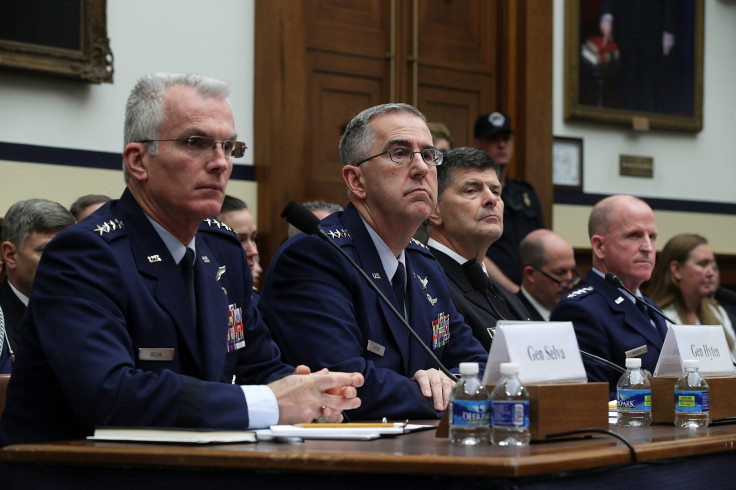Is The US Ready For War? Army Needs More Missiles And Soldiers

Given the growing threat of terror around the world, the U.S. Army is unprepared to go to war if it had to because of a lack of both manpower and firepower, a high ranking Army officer told Congress on Wednesday. A lack of missiles and soldiers was preventing the Army from being fully ready for an unexpected, all-out armed conflict, should there be one soon, Army Lt. Gen. Aundre Piggee told the House Armed Services Committee's Readiness Subcommittee.
"Today I think we have adequate munitions for our known requirements, however if we had to surge if we had a contingency operation and there continue to be emerging threats which we see around the world, I am very concerned with our current stocks of munitions," Piggee testified.
The reported shortcomings may soon find some relief in President Donald Trump's defense spending plan that would increase military expenditures by $54 billion. If approved, it would allow the Army to swell its ranks by at least 1 million soldiers. It would also alleviate the apparent shortage of weaponry, which Piggee listed as "Patriot, Terminal High Altitude Area Defense, or THAAD, and Hellfire missiles as well as precision guidance kits for Excalibur 155mm artillery rounds," according to Military.com.
An advance THAAD missile defense system was moved to South Korea earlier this week in response to North Korea test-firing multiple ballistic missiles that landed in the ocean near Japan. As regional tensions have mounted over both the disputed man-made territories in the South China Sea and North Korea's nuclear ambitions, the U.S. military has gotten increasingly involved in the conflict by patrolling the waterway to ensure safe passage.
With about 500 U.S. Marines troops being deployed to Syria this week to assist in the fight against the Islamic State group and another Cold War with Russia on the verge of breaking out, the state of Army readiness for any other potential conflict was concerning to defense officials.
All of the recent military action was worrisome, Lt. Gen. Joseph Anderson told the House Armed Services Committee's Readiness Subcommittee.
"From my foxhole, all things readiness; going to war capabilities, from force protection to training to running ranges — that has been the impact," the deputy chief of staff for Army G-3/5/7 testified. "It has required more borrowed military manpower to compensate on installations, to run those types of facilities, which are the same soldiers which should actually be going through the training."
© Copyright IBTimes 2024. All rights reserved.






















